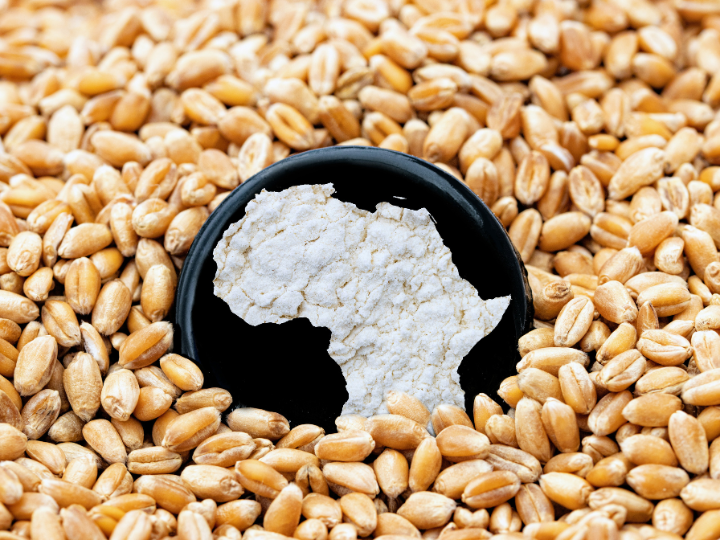by Giles Merritt*
Two statistical bombshells highlight the widening gap between Europe and the world’s poor and hungry. That they have failed to excite much interest in Brussels or EU capitals underlines the European Union’s preoccupation with its domestic concerns at the expense of its global responsibilities.
The first disturbing fact is that poorer countries now spend more on debt interest payments to rich countries than they receive from them in development aid. The second is that the EU has become the largest beneficiary of its own aid funding. While much of that money is for Ukrainian refugees, it underlines the overall trend of a falling-off in Europe’s help for the world’s hungry.
The hunger problem is growing by the day, and within a decade it’s set to reach cataclysmic proportions. As the world population heads towards a mid-century peak of 10 billion, climate change and outdated agricultural methods threaten staple crops. Demand for rice will grow by a third but hotter temperatures are shrinking harvests in the Asian countries that produce nine-tenths of it. Maize and soybeans are equally heat sensitive, signalling serious global food shortages in the coming decades.
Europe is understandably distracted by the Ukraine war and the aftershocks of the Covid pandemic. But it nevertheless has the know-how and resources to launch an ambitious agricultural development strategy that should chiefly be aimed at Africa. It may be that Ursula von der Leyen’s second commission is nurturing plans along these lines, but so far there’s been no sign of that. EU development policy has not been showcased.
The scale of global hunger is matched only by the retreat of richer countries – notably in the EU – from addressing it. Close to a billion people are seriously under-nourished, warns the UN, with outright famine looming over tens of millions in the Horn of Africa. Financially hard-pressed European governments this year cut the EU’s aid budget. Despite its ambitious 2021-27 ‘Global Gateway’ programme, the EU’s pledge to the UN to spend 0.7 per cent of GDP on development programmes by 2030 is a receding target.
Time was when the chief criticisms levelled against the EU concerned its trade policies. Barriers to protect European citrus and vegetable producers from cheaper imports were a major source of friction. In recent years these protectionist devices have been dismantled, to the benefit of Europe’s consumers as well as Africa’s increasingly efficient producers. These, unfortunately, are a tiny minority in an agricultural sector made up of small family plots.
The global food challenge is partly about Europeans’ dwindling financial commitments, but also reflects the archaic farm methods common to many developing countries. The ‘Green Revolution’ the UN urged on Africa some 20 years ago hasn’t taken root. Smallholders who are the bulk of African farmers couldn’t afford the fertilisers, pesticides and genetically-modified seeds that promised to double key crop yields. Worse, between a third and a half of Africa’s harvests are thought to be wasted because of poor storage and inadequate transportation.
If plant diseases, pests and moisture damage were tackled and eventually eradicated, African countries could substantially cut the tens of billions in foreign exchange they spend yearly on food imports. The EU should contribute financially and organisationally to constructing the shared silos and warehousing facilities that are widespread elsewhere. As part of a far greater emphasis on agricultural infrastructure, the farming technologies that are common in Europe would counter soil degradation along with water and irrigation deficiencies.
These are already elements of the EU’s development effort, but they are seen as scattered and uncoordinated. The very different climatic and political conditions in Africa’s 54 nations inevitably fragment technical assistance programs, but there’s nevertheless a strong case for a determined new EU drive to streamline African agriculture.
With China and Russia snapping at its heels, Europe’s role in Africa is rapidly eroding. Cut-throat competition for access to mineral resources does not, however, address African countries’ food and farming needs. The doubling of the continent’s population to 2.5 billion within two or three decades means it will be crucial to double or even triple agricultural output. This is an area where Europe has a decided edge.
Right now, the picture is of an EU too preoccupied with intra-European issues to give global food shortages the high priority they demand. With its Global Gateway criticised for spreading many initiatives too thinly, the new commission would do well to launch a high-profile new strategy called ‘Feeding a Hungry World’.
*Founder of Friends of Europe
**first published in: Friendsofeurope.org




 By: N. Peter Kramer
By: N. Peter Kramer
